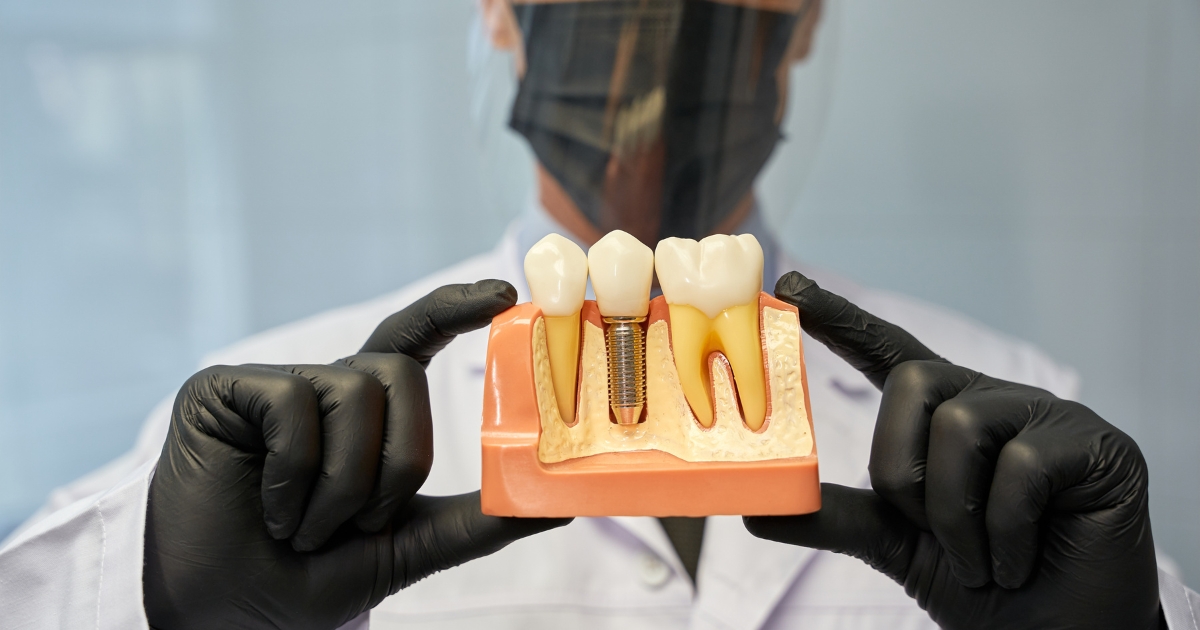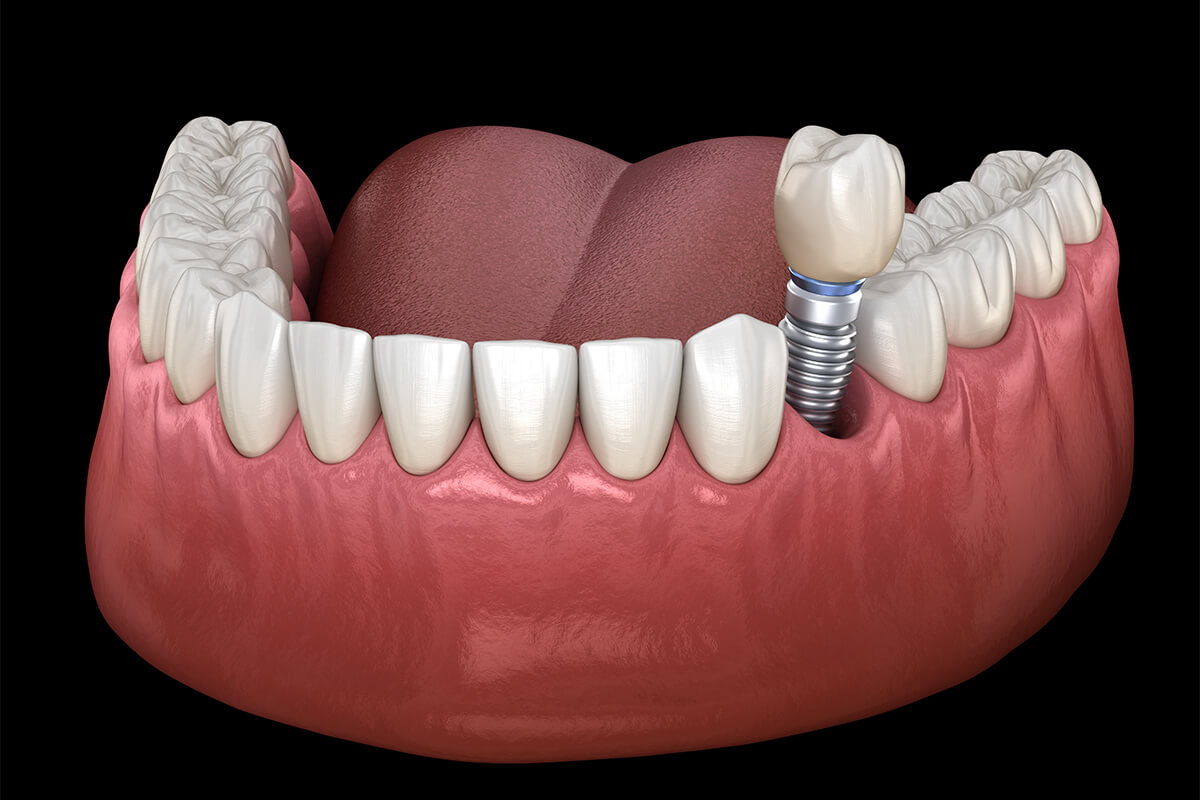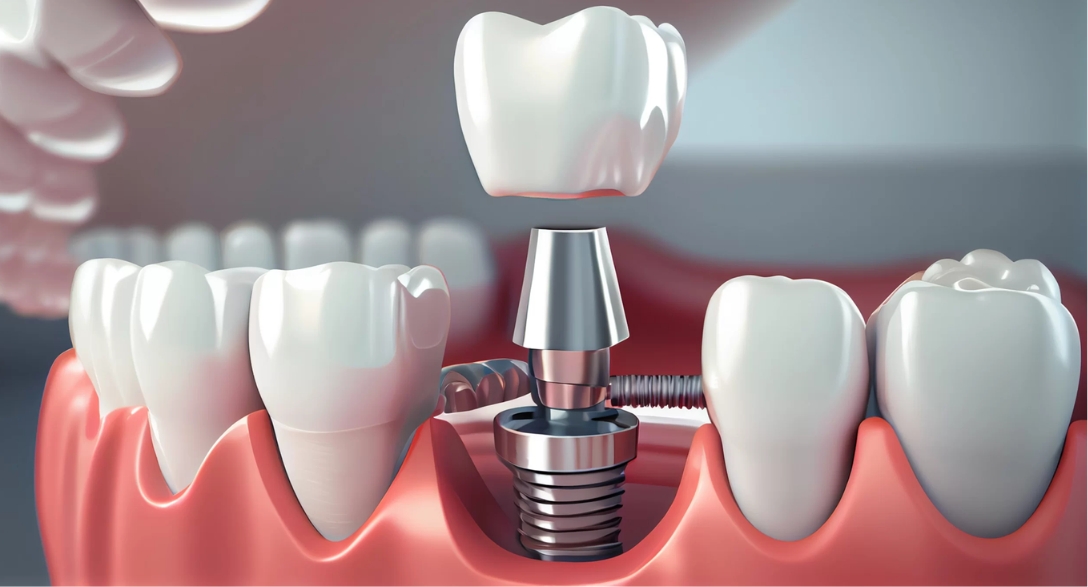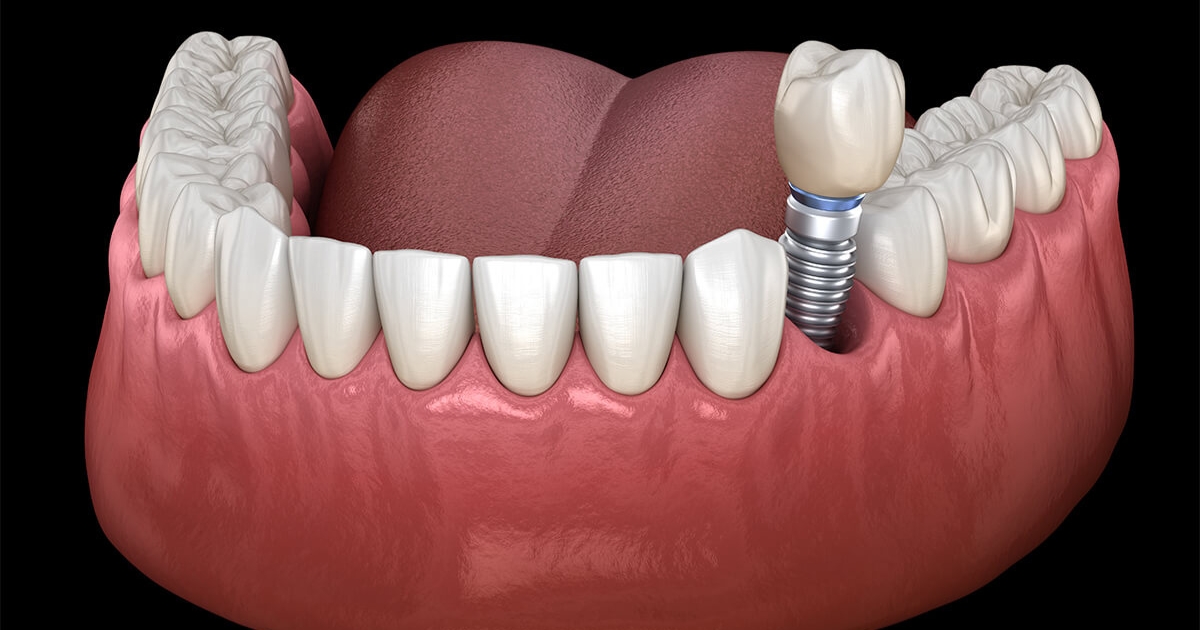Call Us Today 817-737-7668

Losing a tooth can feel like more than just a gap in your smile—it’s a hit to your confidence, comfort, and overall dental health. Fortunately, dental implant restoration offers a game-changing solution. Whether missing one tooth or many, these options can easily restore your ability to chew, speak, and smile.
The challenge?
Understanding which restoration option suits your unique needs.
With so many choices available, from single-tooth crowns to full-mouth solutions like All-on-4®, it’s easy to feel overwhelmed. But don’t worry—this guide breaks it all down. We’ll explore the different restoration options, their benefits, and what factors to consider.
By the end, you’ll clearly understand how dental implant restorations work and which choice can help you reclaim your smile.
Ready to take the first step toward lasting dental health? Let’s dive in!
Understanding Dental Implant Restoration: What Does It Mean?
Dental implant restoration is replacing missing teeth with custom-designed prosthetics supported by implants. The goal is to restore functionality, aesthetics, and oral health. This procedure is versatile and highly personalized to meet individual needs.
A dental implant system has three main components:
- The Implant Post: A titanium screw placed in the jawbone that acts as an artificial root.
- The Abutment: A connector that secures the prosthetic tooth to the implant.
- The Restoration: A crown, bridge, or denture that replaces the visible portion of the missing tooth.
Restoration options depend on factors like the number of missing teeth, oral health, and bone density. Whether you need a single crown or a full-mouth solution, implant restorations are designed to mimic the natural look and feel of real teeth while preserving jawbone structure.
Single Tooth Restoration: Perfect for Individual Gaps
If you’re missing one tooth, a single-tooth restoration is ideal. This method uses a crown attached to an implant to replace the missing tooth without affecting neighboring teeth.
Benefits of single tooth restoration include:
- Natural Appearance: The crown is custom-made to blend seamlessly with your other teeth.
- Durability: Implant-supported crowns are strong and long-lasting.
- Preserved Jawbone Health: The implant stimulates the jawbone, preventing bone loss.
- Improved Functionality: You can chew and speak confidently with a natural tooth.
This option is perfect for maintaining oral health and aesthetics while ensuring minimal impact on adjacent teeth.
Multiple Tooth Restorations: Bridges and Beyond
Missing several teeth in a row? Implant-supported bridges are an excellent solution. Unlike traditional bridges, which rely on adjacent teeth for support, these restorations are anchored to implants.
Advantages of implant-supported bridges include:
- Enhanced Stability: Implants provide a secure foundation, ensuring the bridge doesn’t shift.
- Protection for Natural Teeth: This option reduces stress on neighboring teeth by avoiding grinding or reshaping.
- Improved Aesthetics: The prosthetics blend naturally with your existing teeth for a seamless smile.
- Long-Term Durability: With proper care, these bridges can last decades.
This restoration method perfectly balances functionality and aesthetics, especially for those with multiple gaps. Consulting an endodontist in Dallas ensures you receive the right care tailored to your oral health needs.
Full-Mouth Restoration: A Solution for Extensive Tooth Loss
Full-mouth restoration provides a comprehensive solution for patients with severe tooth loss. Techniques like All-on-4® implants and implant-supported dentures make this possible, even for those with minimal jawbone density.
Key benefits of full-mouth restoration include:
- Fewer Implants: Solutions like All-on-4® require just four strategically placed implants for a full arch of teeth.
- Natural Functionality: Enjoy better bite strength and the ability to eat various foods.
- Aesthetic Appeal: Modern prosthetics closely resemble natural teeth.
- Improved Oral Health: Implants stimulate the jawbone, preventing further bone loss.
This option is ideal for patients looking to restore their entire smile without compromising comfort or longevity.
Factors to Consider When Choosing a Restoration Option
Choosing the right dental implant restoration requires careful consideration. Your endodontist will assess your oral health, lifestyle, and financial situation to recommend the best solution.
Key factors to evaluate include:
- Bone Density: A strong jawbone is necessary to support implants. Bone grafting may be needed for those with bone loss.
- Extent of Tooth Loss: The number of missing teeth determines whether you need a single crown, bridge, or full-mouth restoration.
- Oral Health: Conditions like gum disease must be treated before implant placement.
- Budget and Insurance: Costs vary depending on the restoration type and additional procedures. Explore insurance coverage and financing options to plan effectively.
Dental implant restoration offers more than a beautiful smile—it restores confidence, function, and oral health. Whether you need a single crown or a full-mouth solution, the options are as unique as you are. Take the next step toward a healthier, stronger smile by exploring the right restoration option for your needs. Consulting an experienced endodontist near you ensures you make the best choice for your oral health journey.





